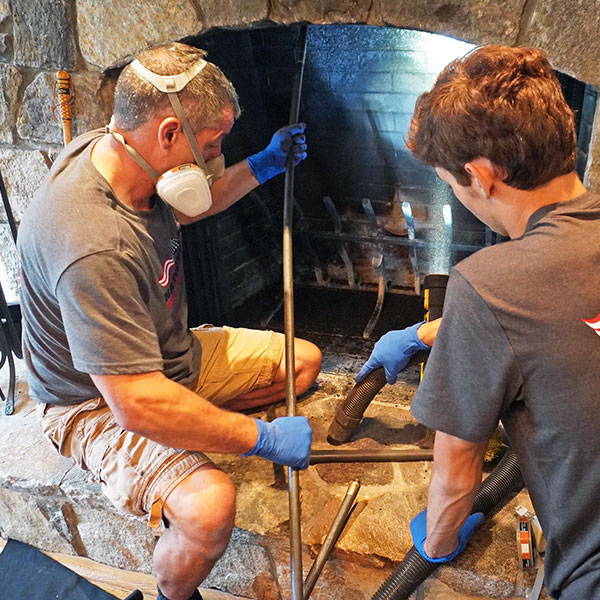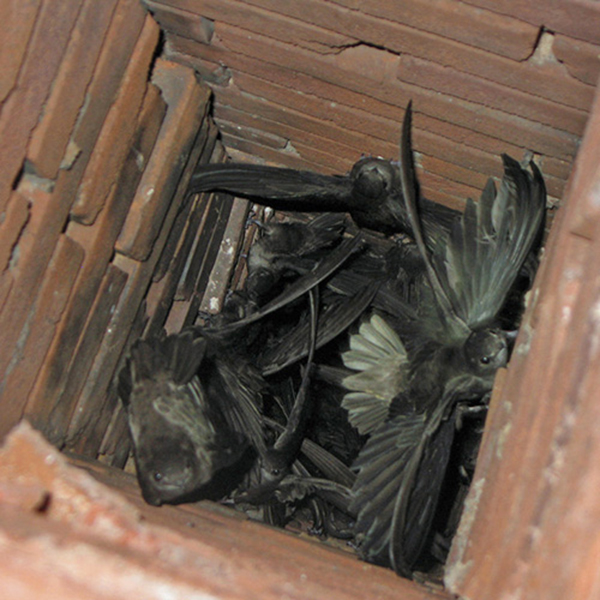Why Does My Fireplace Smell?
A smelly fireplace is no fun to live with. Fortunately, there are ways to get rid of the smell and keep it from coming back. National Chimney Cleaners works throughout Fairfield County, CT, and Morris County, NJ, to help homeowners keep their chimneys and fireplaces safe and clean. And non-smelly. Here’s what you need to know.
 4 common chimney and fireplace odors and their causes
4 common chimney and fireplace odors and their causes
Different causes of odors will produce different types of smells, so the origin of the problem is usually easy to identify.
1.Smoky smell
When wood fires burn, a substance known as creosote is formed. Being a smoke byproduct, creosote will give off a smoky smell.
Beyond the smell: Creosote in chimney flues is the main cause of chimney fires every year in the U.S. Creosote is also acidic and can damage a chimney liner and other areas within a chimney flue.
2. Damp, musty smell # 1
If your chimney is letting water in through a leak or a missing chimney cap, the moisture will lead to mold and algae growth inside your flue and send odors into your home.
Beyond the smell: Water leaks can cause mold growth, and they also can cause widespread deterioration throughout your chimney system.
3. Damp, musty smell #2
Another version of a “damp, musty” smell comes from an accumulation of leaves and other tree debris in your chimney. The nesting material of small animals also produces this type of odor.
Beyond the smell: A buildup of debris in your chimney will narrow the flue and cause smoke to draft sluggishly. Along with smoke, there is deadly carbon monoxide, which can back up into your home when the flue is blocked.
 4.Rotting smell
4.Rotting smell
We noted nesting materials above, but your chimney also may be producing odors caused by deceased animals who’ve built the nests. Birds, squirrels, raccoons, rodents and others often die inside chimney flues.
Beyond the smell: Decomposed animals can pose a health risk, depending on how many there are and where in the chimney they’re located. In addition, the bodies attract bugs and flying insects that you don’t want in your chimney (or home).
Removing the odor and preventing bad smells in the future
Whatever is inside your chimney and causing it to smell needs to be removed. For most homeowners, the simplest way is with the services of a professional chimney sweep.
Chimney sweeps use a variety of tools to safely remove built-up creosote, leaves, twigs, animal nests and dead animals. Most technicians can make repairs to stop chimney leaks, if that’s what’s causing the smell.
After the unpleasant odor is gone, your chimney technician will recommend installing a chimney cap, if you don’t already have one. Running a chimney without a cap opens the flue to rain, debris and all sorts of wildlife. Capping off the top of your chimney keeps all this stuff out.
As to creosote buildups, annual chimney sweeping is the best way to minimize this substance and reduce not only the smoky smell but also the chance of a chimney fire.
Help for your smelly chimney
National Chimney Cleaners provides chimney cleaning, chimney repairs, chimney leak resolution and full chimney inspections. Speak with an expert today at 800-631-6177 or reach out through our handy contact form.

 4 common chimney and fireplace odors and their causes
4 common chimney and fireplace odors and their causes 4.Rotting smell
4.Rotting smell